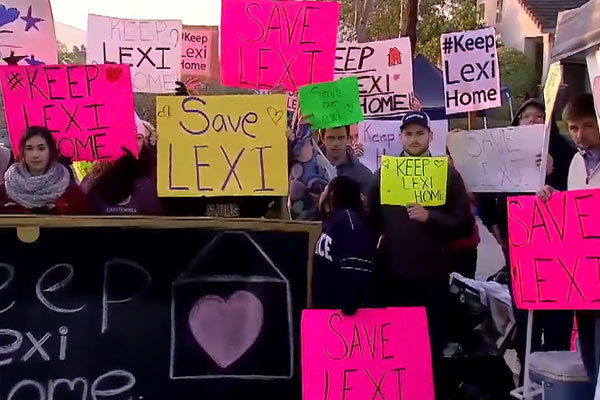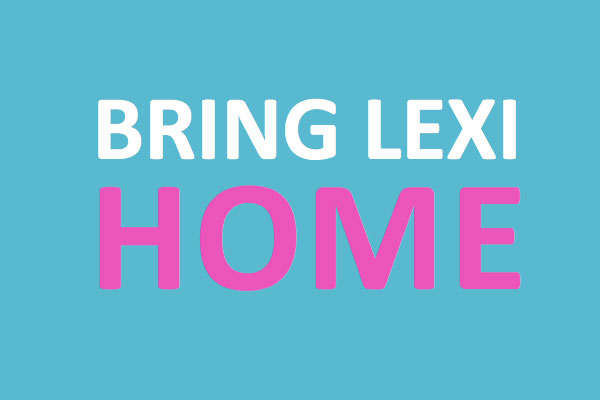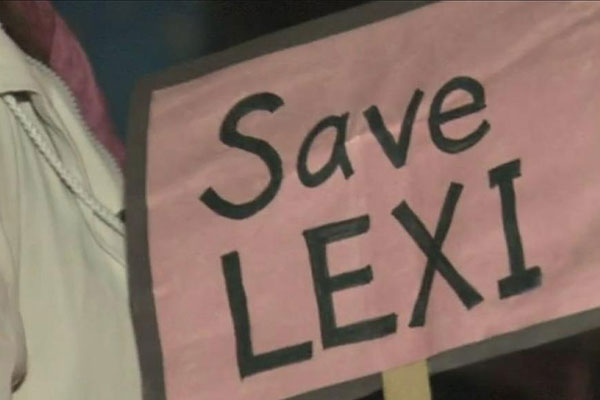However, the Pages did not “teach” Lexi to call them Mom and Dad; instead, by providing for her daily needs through love and consistency, it came naturally.
- “Successful parenting is based on a healthy, respectful, and long-lasting relationship with the child. This process of parenting, especially in the psychological rather than the biologic sense, leads a child to perceive a given adult as his or her “parent.” That perception is essential for the child’s development of self-esteem and self-worth. A child develops attachments and recognizes as parents adults who provide “… day-to-day attention to his needs for physical care, nourishment, comfort, affection, and stimulation.”” (http://pediatrics.aappublications.org/content/106/5/1145.long) Lexi was two years old at this time.
- “Unlike adults, children have no psychological conception of blood-tie relationships until quite late in their development…What matters to them is the pattern of day-to-day interchanges with the adults who take care of them and who, on the strength of such interactions, become the parent figures to whom they are attached.” Goldstein et al., Beyond the Best Interests of the Child (The Free Press 1979)The natural effect of a child staying with a family is that she will learn to love them, and they will love her. It is what happens over and again in foster & adoptive homes. No one should be surprised it happened here.
https://adoption.com/forums/thread/314528/foster-question-what-do-foster-children-call-address-foster-parents-as/
- “I was curious about the same thing. I finally decided that kids could call me whatever they wanted as long as it wasnt rude. I have had kids who called my MIL (who lives next door) mom, simply because everyone else does too. I dont think kids will call you mom or dad if there are no are no other kids in the house, but I found they often prefer to call you some version of your name. Then again maybe that only applies to me since my name can be hard for kids to pronounce properly.”
- “It really all depends on the age of the children you are getting. The younger ones tend to call you Mama, Papa, Dada things like that. My previous foster son that was 7 called me Sam. On a couple of occasions he called me Mom but he has a mother and I wasn’t trying to replace her. Some people prefer to be called Ms. __ or Mr. or Nana. Auntie seems popular. It will all fall into place when you get a child. I tend to see Ms. and Mr. only when they are a foster only or the children are older or the parents are older. You might find a 4 or 10 yr old will automatically call you Mom/Dad…It will works itself out. Ultimately it’s the age that you get.”
- “Here in Hawai’i just about every woman is “auntie” and every man “uncle”. So, usually I start out with that. I have a Biological son who (of course!) calls me “mom”, so usually my younger ones end up calling me “mom”. I feel (and have been backed up by SWs and therapist) it is more detrimental to the kiddo to say “no! I am not mom, you have to call me “X””. I have been told that it is very common for foster kids to call FPs mom and dad. Of course this can REALLY upset Biological parents sometimes… but that is a whole other story.”
- “My first fk called dh by his first name, but called me Mrs. K–she was a former student of mine. The littles have always come around to some form of mom–they need that. The kids we have now call their biomom by her first name when talking to her and sometimes “my mama” when talking about her. To differentiate, they call me mommy…My advice is to just relax and let the kids decide. It gives them a little feeling of control.”
- “It took my foster sons about 2 days to start calling me mom. They were just turning 3 and 5 at the time. What got me…as soon as my husband walked through the door and met them for the first time he was daddy!…It was so funny because my fs are both white, as am I, and my husband is black. Proof that children really don’t see color! As far as Biological mom, she was Moma — and I was Moma — when we were around her or talking about her. Lately, my younger fs has been calling me by my name sometimes. I have had a fd who only stayed for a month. She was eleven and asked me after a couple of days if she could call me mom! Wow!…The kids know what they’re a comfortable with and shouldn’t be made to call you mom/dad. Let it be up to them!”


